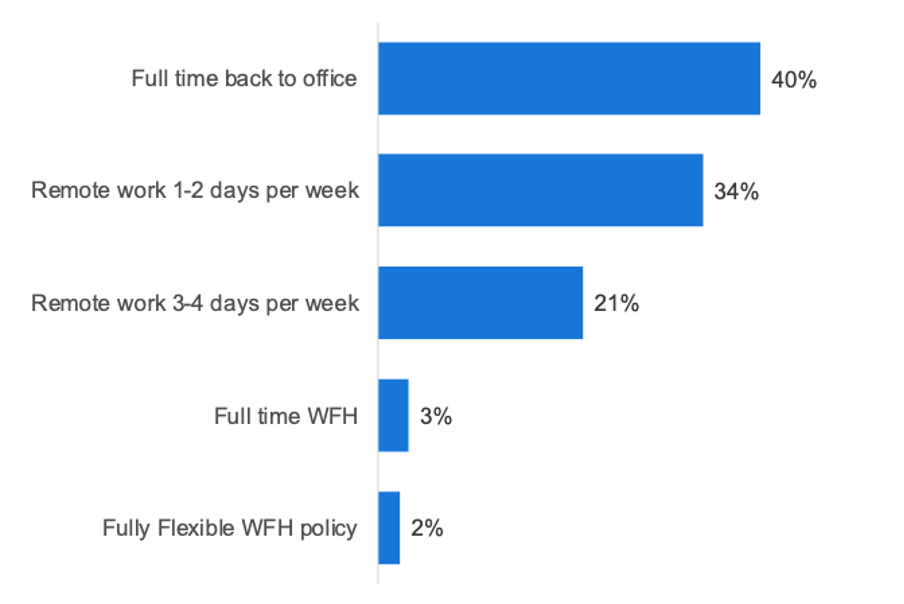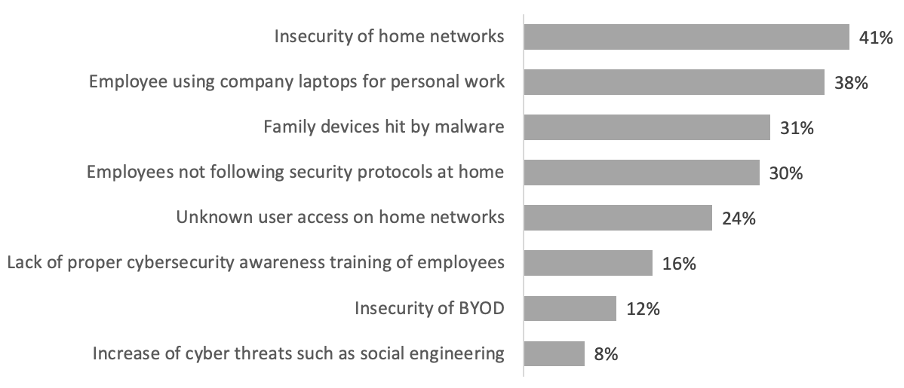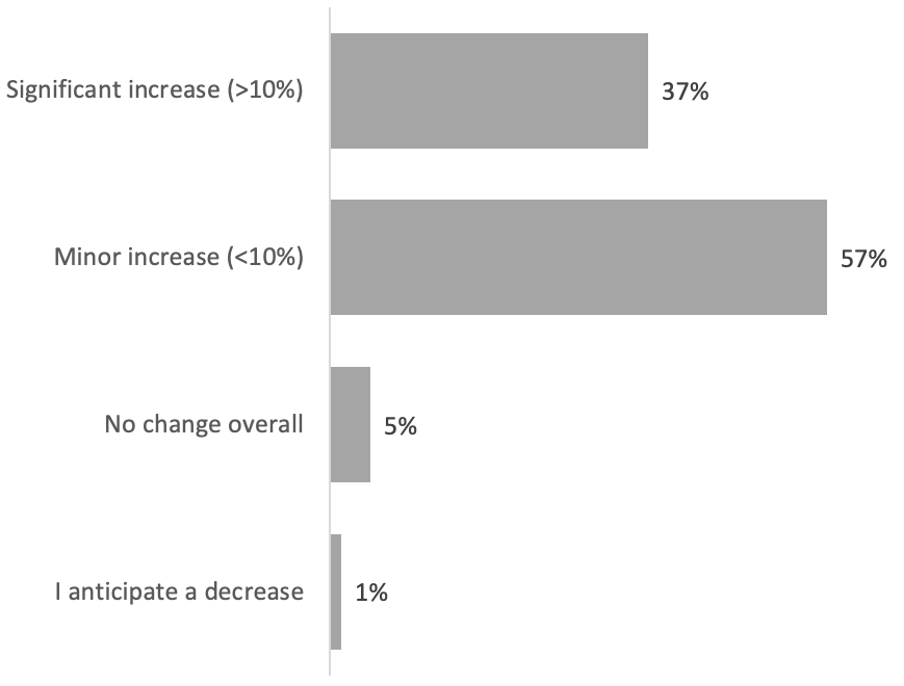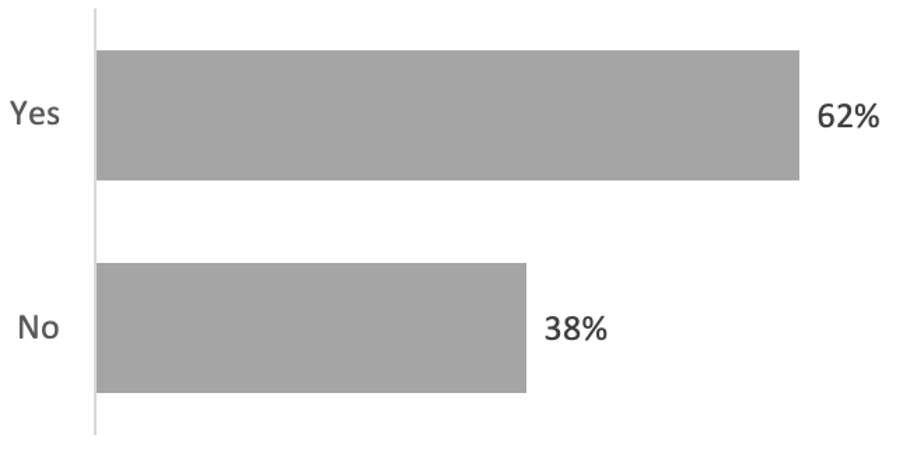London, UK | 020 3997 7979
Cyber Resilience
WFH is now officially WFA: 80% of companies increase security budgets
14 March 2023 | ITHQ Tech Team
New Fortinet survey reveals impact of 'Work-from-Anywhere' on security spending
The "2023 Work-From-Anywhere Global Study" by Fortinet found that most of the 570 companies surveyed are still accommodating employees working from home, or are embracing a hybrid-work strategy for their employees. More than 80% of those companies have increased security budgets as a result, citing the need to protect confidential data and IP as a major factor. A multi-layered approach to cyber resilience is now non-negotiable.
Peter Newton, senior director of product and solutions at Fortinet says that this points out the  fact that vulnerabilities associated with home network, personal applications, and personal devices all act as back-door into companies’ networks, applications, and data.
fact that vulnerabilities associated with home network, personal applications, and personal devices all act as back-door into companies’ networks, applications, and data.
The survey revealed that security solutions used for securing remote workforces vary widely across companies. According to Newton, those that experienced a breach tied to WFA are more likely to invest in both traditional technologies such as laptop antivirus and VPN, as well as modern approaches like SASE, SD-WAN, and zero-trust network access (ZTNA).
Survey Questions
The survey questions were designed to determine the extent of commitment exhibited by companies towards safeguarding their networks, data and employees against cyber threats; additionally identifying which specific security concerns take precedence over others.
Other objectives included:
- Assessing the number of WFA-related breaches experienced
- Examining existing security measures adopted by various firms
- Evaluating willingness among businesses for engaging multiple vendors offering different types of protection solutions
- Understanding budgetary priorities regarding cybersecurity expenditure.
Three crucial discoveries emerged:
- WFA is a permanent fixture
- Home network vulnerabilities are top of mind for organizations
- Cybersecurity investment will be substantial, but there's no agreement on which solutions to prioritize
Key Survey Highlights
The answers to a key survey query - What is your organisation's current remote working policy? – demonstrate that 6 in 10 of the 570 businesses surveyed are still providing for staff operating from home, and over half have embraced an amalgamated work procedure for their personnel.
What does your company's remote work policy look like currently? 
(Current remote work policies from 570 responses)
The Biggest WFA Security Risks
Most organisations recognise the insecurity of home and distant networks as their primary WFA safety issue. This is a huge problem mainly due to being unable to stretch corporate security into an external environment.
Other problems arise from employees utilising company laptops for personal use, staff not adhering to protocols when away from work and unfamiliar people accessing the domestic network. What companies crave is having consistent regulations across all sites including those used by workers remotely connecting with the web.
The challenge here lies in putting measures together and enforcing them both on-site and at any remote locations like residences or homes offices etc.
Where do you believe your two biggest security risks lie from WFA?

(Biggest WFA security risk from 570 responses)
How will you adjust your security budget to support your company’s long-term WFA policy?

(Future WFA security budget adjustments from 570 responses)
Did you experience a security breach during the past two to three years that could be at least partially attributed to an employee working remotely?

(Security breach from WFA from 570 responses)

